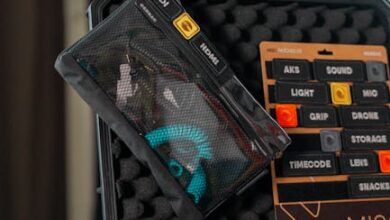The “AI Factory”: More Than Just Servers in a Room

The world of Artificial Intelligence is moving at a blistering pace, and if you’ve been following the news, you know that infrastructure is king. We often talk about the algorithms, the breakthroughs, and the potential, but behind every generative AI model, every autonomous system, and every predictive analytics tool lies an immense network of computing power. It’s a foundational requirement that is now becoming a strategic national asset.
That’s why the recent announcement between tech giant Nvidia and German telecommunications behemoth Deutsche Telekom is more than just a headline; it’s a statement of intent. A massive €1 billion partnership to establish an “AI factory” in Munich, Germany, isn’t merely an investment in hardware. It’s a calculated move to significantly boost Germany’s AI computing power by a staggering 50%, setting the stage for a new era of innovation in the heart of Europe.
For anyone who’s watched Germany’s industrial strength evolve, or for those of us who appreciate the intricate dance between technology and economic growth, this collaboration signals something profound. It’s about planting a flag, quite literally, in the competitive global landscape of artificial intelligence.
The “AI Factory”: More Than Just Servers in a Room
When you hear “AI factory,” it’s easy to imagine rows upon rows of glowing servers. While that’s certainly part of the picture, the concept is far more expansive and strategic. This isn’t just about housing powerful GPUs; it’s about creating a comprehensive ecosystem designed to accelerate every stage of AI development, from research and training to deployment and scaling.
Nvidia, a company synonymous with cutting-edge AI acceleration, brings its formidable stack to the table. We’re talking about their H100 Tensor Core GPUs, their CUDA platform, and their full suite of AI Enterprise software. This isn’t just hardware; it’s a complete toolkit that developers, researchers, and enterprises can leverage immediately. Their expertise in creating scalable, high-performance AI infrastructure is unparalleled, making them the ideal partner for such an ambitious undertaking.
Deutsche Telekom, through its enterprise customer arm T-Systems, provides the crucial operational backbone. They’re not just offering a location; they’re providing the secure, reliable, and high-bandwidth network connectivity, the data center expertise, and the cloud infrastructure necessary to operate and manage such a complex system. This blend of Nvidia’s specialized AI capabilities and Deutsche Telekom’s robust telecommunications and cloud services creates a powerful synergy.
Why Munich, and Why Now?
Munich is a logical choice for several reasons. It’s a vibrant economic hub with a strong tradition of engineering and innovation, home to numerous research institutions, universities, and industrial players. Bavaria, in general, has been keen to position itself as a European tech leader. This strategic placement ensures access to top-tier talent and fosters collaboration with a rich ecosystem of existing businesses and startups.
The “why now” is perhaps even more critical. The demand for AI computing power is skyrocketing. Training increasingly complex large language models, developing sophisticated autonomous systems, and processing vast amounts of data all require immense computational resources. Germany, with its robust manufacturing base and strong scientific community, cannot afford to lag behind. This investment is a proactive step to ensure its continued competitiveness in the digital age.
Beyond the Gigawatts: What This Partnership Really Means for Germany and Europe
While the technical specifications are impressive, the true impact of this €1 billion partnership extends far beyond mere computing power. It’s about igniting a national movement and solidifying Germany’s — and by extension, Europe’s — position in the global AI race.
Catalyzing German Industry: From Research to Real-World Impact
An immediate beneficiary will be Germany’s formidable industrial sector. Imagine the advancements possible in automotive, where autonomous driving systems demand unprecedented levels of AI processing. Or in manufacturing, where Industry 4.0 initiatives can be supercharged with predictive maintenance, optimized supply chains, and robotic automation driven by cutting-edge AI.
Healthcare, finance, logistics – nearly every sector stands to gain. Startups and small and medium-sized enterprises (SMEs), often the engines of innovation, will gain access to infrastructure that would otherwise be prohibitively expensive or complex to build themselves. This levels the playing field, fostering innovation and creating new business opportunities right across the economy.
This “AI factory” will serve as a national hub, providing access for German enterprises, public institutions, and research organizations to world-class computing infrastructure. It’s a concrete step towards turning Germany’s strong theoretical AI research into tangible, commercial applications and services.
A Strategic European Play for Digital Sovereignty
If you’ve been following the broader geopolitical conversations, you’ll know that digital sovereignty is a major theme in Europe. There’s a strong desire to reduce reliance on non-European cloud providers and AI infrastructure, ensuring data security, privacy, and control within European borders.
This Nvidia-Deutsche Telekom partnership aligns perfectly with that ambition. By creating a leading-edge AI infrastructure domestically, Germany takes a significant step towards securing its digital future. It’s about empowering European companies and governments to innovate with confidence, knowing their sensitive data and critical AI processes are handled within a framework they trust.
Attracting and Nurturing Top-Tier Talent
Building an “AI factory” isn’t just about machines; it’s about people. A state-of-the-art facility like this will be a magnet for top AI engineers, data scientists, and researchers. It provides a fertile ground for collaboration, a place where theoretical advancements can be quickly tested and deployed in real-world scenarios.
This initiative will undoubtedly strengthen Germany’s position in the global talent war for AI experts, encouraging both domestic talent to stay and international talent to relocate. It fosters a vibrant ecosystem that can attract investment, spawn new startups, and ultimately drive long-term economic growth and technological leadership.
The Road Ahead: Challenges and Opportunities
Of course, such a massive undertaking isn’t without its challenges. The energy consumption of such a data center is considerable, making sustainable operations and reliance on renewable energy a critical factor. Furthermore, ensuring the ethical and responsible development of AI, particularly given its growing power, will be paramount.
However, the opportunities far outweigh the obstacles. This partnership positions Germany not just as a consumer of AI, but as a significant producer and innovator. It sends a clear signal that the country is serious about leveraging AI for economic growth, industrial transformation, and strategic advantage.
A Bold Step Towards an Intelligent Future
The €1 billion partnership between Nvidia and Deutsche Telekom for an “AI factory” in Munich is a landmark moment. It’s a powerful testament to the belief that investing in foundational AI infrastructure is not just a technological imperative, but an economic and strategic necessity. By boosting Germany’s AI computing power by 50%, this collaboration promises to unlock unprecedented innovation across industries, foster digital sovereignty, and solidify Germany’s place at the forefront of the global artificial intelligence revolution. It’s a bold step, and one that promises to shape the intelligent future of Germany and, indeed, Europe.





